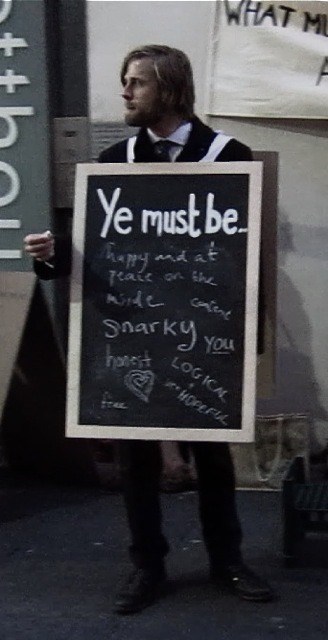What do you get when you mix a dash of pub culture, a splash of irreverence, a healthy dose of conversation, a smattering of postmodernist critique, a drizzle of discourse on problematic concepts such as ‘religion’ and ‘the secular’, and a host of other eclectic and idiosyncratic ingredients to taste? Depending upon the measures, one possible outcome could be an ideal-typical podcast from your friends at The Religious Studies Project. Prepare in a slightly different manner and your culinary exploits could produce a manifestation of the Emerging Church. However, in the case of the latter, similar results might be obtained from a completely different set of ingredients.
The Emerging Church Movement (ECM) is notoriously difficult to define. What are scholars of ‘religion’ to do with a trend seemingly emerging both within and without many contemporary manifestations of (Western) Christianity, that is both anti-institutional and ecumenical, aims to avoid hierarchies and power structures, embraces creativity, deconstruction and experimentation, and actively promotes a ‘neutral’ and ‘non-judgmental religious space’ where almost anything goes? In this week’s podcast, Chris is joined by Dr Gladys Ganiel to discuss this ‘problematic’, important and boundary-pushing phenomenon.
Podcast: Play in new window | Download | Embed
Subscribe: RSS
In The Deconstructed Church: Understanding Emerging Christianity (Oxford, 2014), Ganiel and co-author Gerardo Marti write:
“We define Emerging Christians in terms of sharing a religious orientation built on a continual practice of deconstruction. We characterize the ECM as an institutionalizing structure, made up of a package of beliefs, practices, and identities that are continually deconstructed and reframed by the religious institutional entrepreneurs who drive the movement and seek to resist its institutionalization. As such, the ECM is best seen as a mix of both reactive and proactive elements, vying for the passion and attention of Christians and nonbelievers. Emerging Christians react primarily against conservative/evangelical/fundamentalist Protestantism but also against other forms of traditional Christianity that they have experienced as inauthentic. At the same time, they proactively appropriate practices from a range of Christian traditions […] to nourish their individual spirituality and to enhance their life together as communities.” (25-26)
What is it that makes this movement ‘Christian’? What does it do to traditional understandings of ‘religion’ and ‘secularization’? How does one research such a seemingly diffuse and unbounded phenomenon? Is it only a matter of time before this movement undergoes a process of systematization? These questions and more form the basis of a discussion which took place in May 2014, at the Irish School of Ecumenics, Trinity College Dublin in Belfast, a couple of days after the 3rd Annual Conference of the Irish Society for the Academic Study of Religion.
You can also download this interview, and subscribe to receive our weekly podcast, on iTunes. If you enjoyed it, please take a moment to rate us. And remember, you can use our Amazon.co.uk, Amazon.ca, or Amazon.com links to support us at no additional cost when you have a purchase to make.







